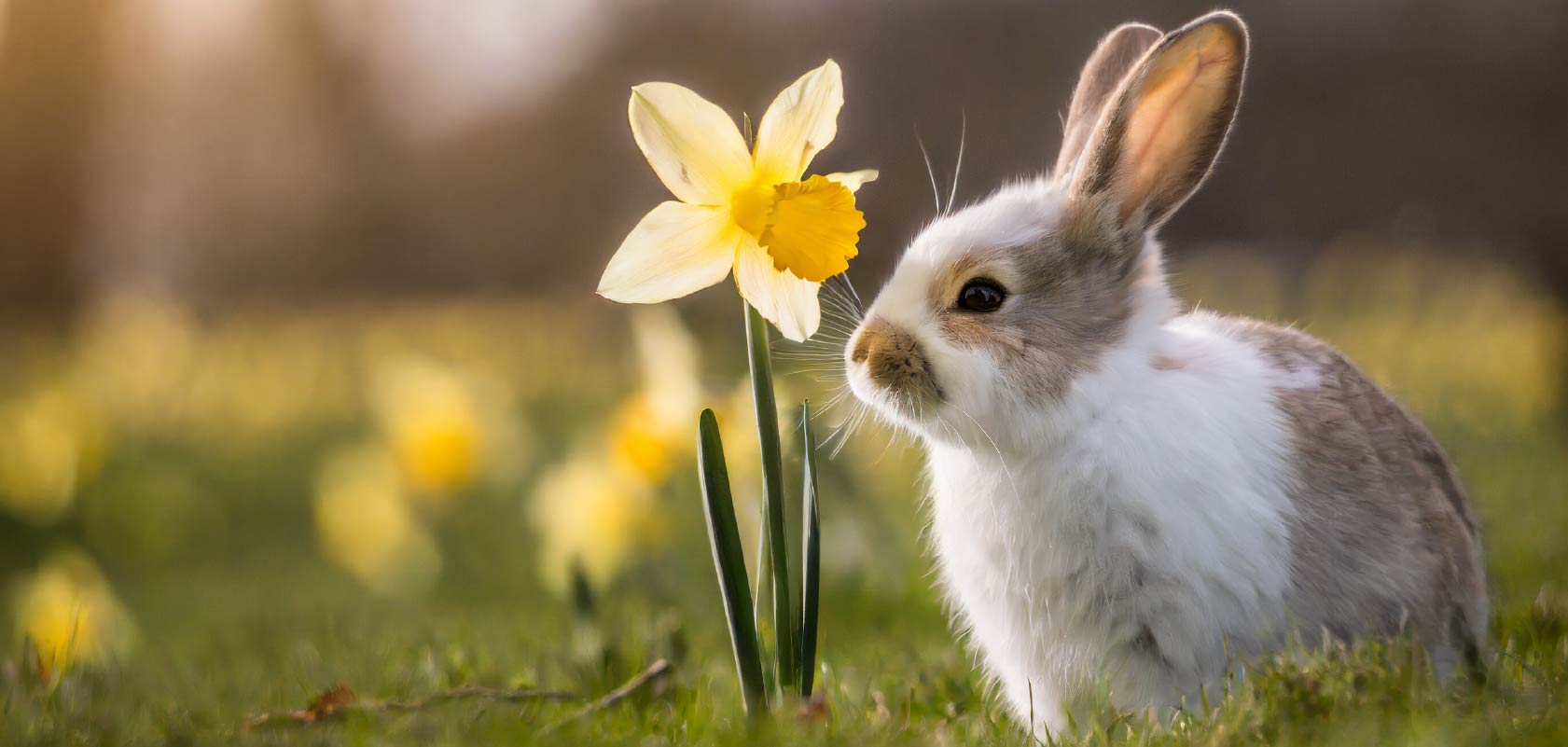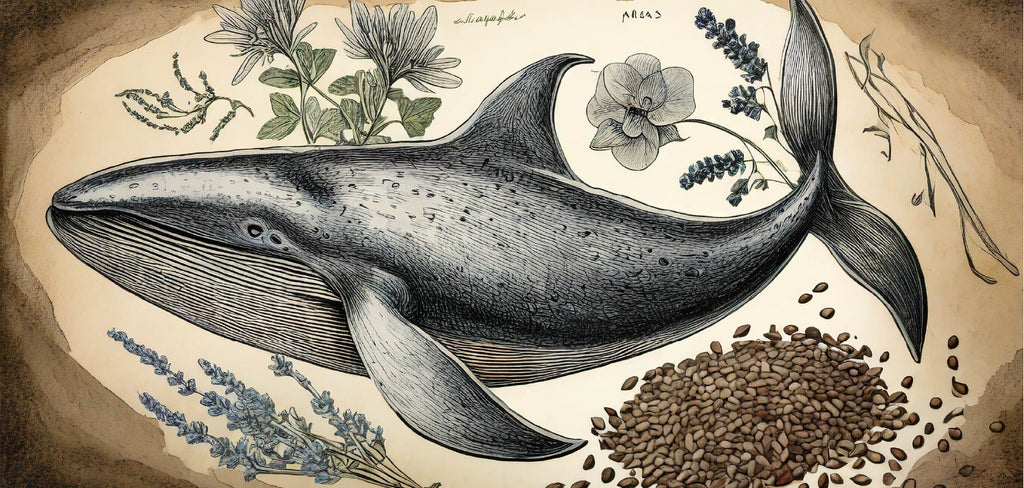Vegan perfumes stand as a beacon in the evolving narrative of the beauty industry, signaling a significant shift towards ethically conscious choices. As consumers increasingly prioritize clean beauty products enriched with natural ingredients and sustainable practices, this paradigm extends its influence into the fragrance sector. The growing allure of vegan perfumes speaks to a collective desire for products that align with ethical and environmental values. Yet, beneath the surface of marketing buzzwords, a realm of intricate realities beckons consumer understanding. This essay sets out to decipher the complexities surrounding clean beauty, shedding light on seven essential truths that illuminate the production of vegan and sustainable perfumes.
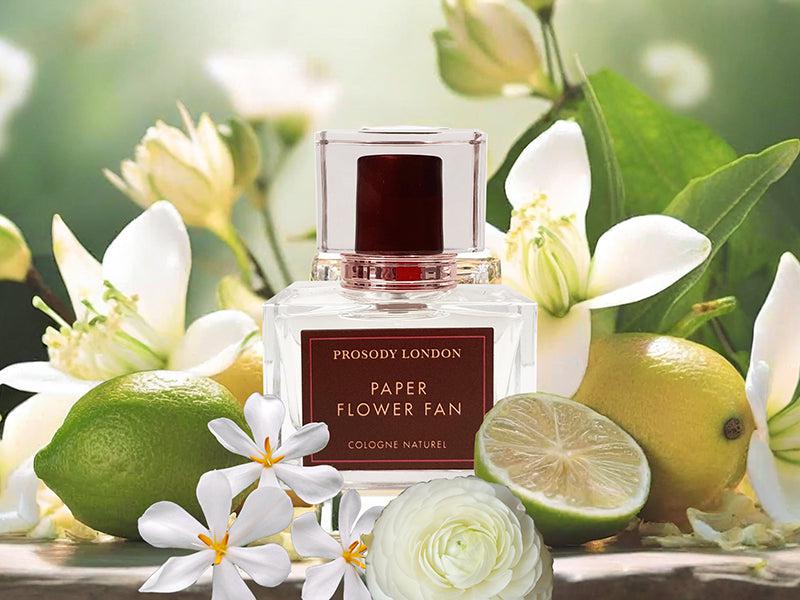

Prosody London Vegan perfume: Paper flower Fan Cologne
1. Vegan Perfumes: Navigating the Natural Realm:
The distinction between “vegan” and “natural” within the perfumery landscape reveals a nuanced terrain demanding consumer navigation. While the term “vegan,” endorsed by the Vegan Society, ensures the exclusion of animal-derived ingredients, it falls short of guaranteeing reliance on plant-based or natural components. In the realm of vegan perfumes, the consumer journey involves understanding that the absence of animal-derived ingredients doesn’t necessarily translate to a commitment to natural sources. Many perfumes labeled as vegan may inadvertently rely on synthetic aromachemicals, often originating from petroleum by-products.
2. Synthetic perfumes equals vegan perfumes – a case of ‘Greenwashing’
The integration of synthetic ingredients into perfumes marketed as vegan introduces a significant ethical dimension, akin to a form of ‘greenwashing.’ While these perfumes claim vegan status, they may heavily depend on synthetic aromachemicals, challenging the authenticity of their eco-friendly claims. True natural perfumes, aligned with clean beauty principles, necessitate a commitment to plant-based, non-GMO elements. The deceptive use of the term “vegan” without this botanical commitment raises questions about transparency in labeling practices, underscoring the importance of informed consumer choices in the realm of vegan perfumes.
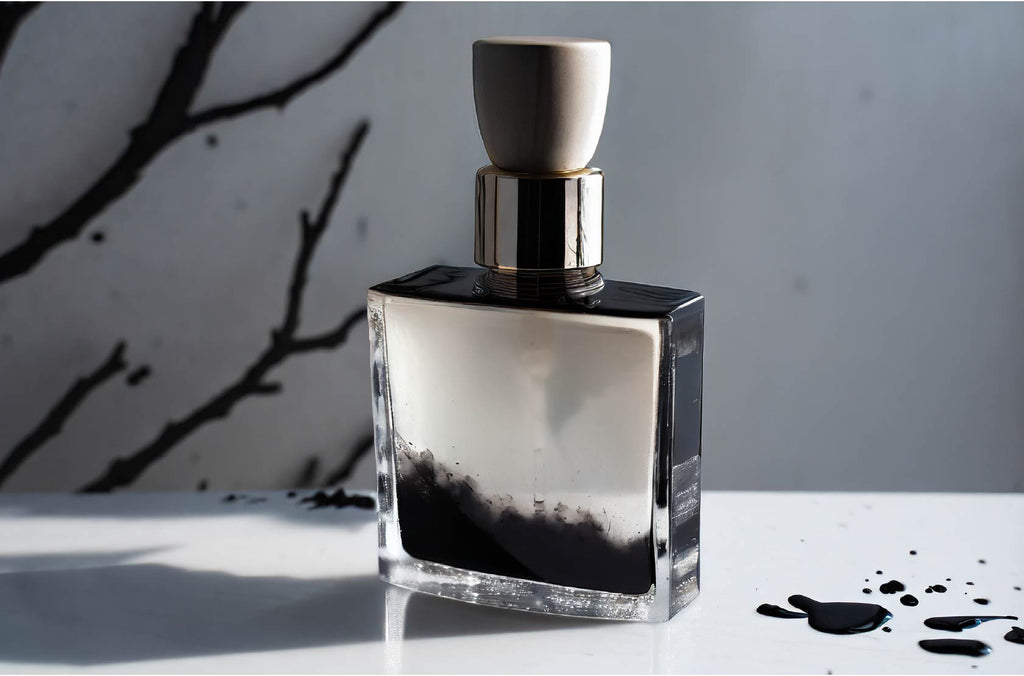

3. The Aesthetic Superiority of Vegan perfumes with Natural Botanicals:
The preference for natural botanicals over synthetic alternatives in vegan perfumery is a multifaceted choice rooted not only in ethics but in artistry. Perfumers, fueled by a profound passion for fragrance art, consciously choose vegan perfumes with natural botanicals due to their unparalleled richness and complexity. For instance, natural jasmine absolute in vegan perfumes transcends the sensory experience provided by synthetic counterparts, highlighting the artistic commitment to craftsmanship and the belief in the intrinsic beauty of vegan perfumes.
4. Animal-Free, Yet Largely Synthetic in Vegan Perfumes:
While the fragrance industry has commendably shifted away from animal ingredients in vegan perfumes, a noteworthy paradox emerges. Despite the move toward animal-free formulations, a substantial segment of vegan perfumes continues to rely heavily on synthetic compounds. This shift aligns with ethical principles but poses a challenge to preserving the centuries-old heritage of natural ingredients in vegan perfumery. Balancing ethical practices and preserving the artistry within perfumery becomes a pivotal challenge, emphasizing the need for alternative methods that capture the essence of animalic notes ethically and sustainably in vegan perfumes.
5. The Role of Animalic notes in Perfumery:
The inclusion of animalic ingredients like Ambergris, Civet, Castoreum, and Hyraceum in perfumery presents a captivating dichotomy, balancing potential ethical concerns with their pivotal role in crafting scents. These ingredients act as modifiers, imparting a distinctive sensual dimension and contributing significantly to the stability of fragrance blends.
For instance, Ambergris, derived from the digestive secretions of sperm whales, serves as a classic example. Despite its rarity and ethical considerations, it remains highly sought after for its unique ability to enhance and fix scents, providing a distinctive depth to perfumes.
Similarly, Civet, historically obtained from the anal glands of the civet cat, introduces an animalic note that adds complexity and warmth to perfumes. Although modern perfumery often opts for synthetic alternatives due to ethical concerns, the allure of its original richness persists.
Castoreum, sourced from the castor sacs of beavers, contributes to perfumes with its leathery and musky undertones. Ethical considerations, such as the culling of beavers for its extraction, have led to a decline in its use, prompting perfumers to explore synthetic substitutes.
Hyraceum, a fossilized material derived from the excretions of the rock hyrax, offers an exotic and animalic touch to fragrances. While its unique origin aligns with ethical principles, ethical considerations surrounding its collection highlight the ongoing challenges of balancing creativity with ethical sourcing.
6. The Sustainability Quandary:
The disillusionment deepens as we unravel the intricacies of the so-called sustainability in perfumery, exposing it as a mere marketing ploy rather than a genuine commitment. The concept, when affixed to perfumes labeled as both sustainable, often proves to be a deceptive facade. Behind the seemingly eco-conscious veil lies a stark reality – the fragrance may well be entirely concocted from synthetic aromachemicals derived from petroleum, a contradiction that undermines the very essence of true sustainability.
In this sustainability quandary, the industry’s portrayal of environmental responsibility crumbles, revealing an unsettling truth. A perfume, adorned with labels suggesting a harmonious blend of sustainability practices, can paradoxically contribute to environmental degradation through its reliance on petroleum-based synthetics. The hollow nature of this portrayal becomes evident, as genuine sustainability demands a steadfast commitment to eschew petroleum products entirely, thus diminishing the industry’s dependence on fossil fuels.
The sustainability narrative, once a beacon of hope for eco-conscious consumers, now stands exposed as a labyrinth of misleading claims. True sustainability necessitates not just a superficial adherence to popular eco-friendly terms but a holistic departure from practices that perpetuate environmental harm. The industry’s embrace of synthetics under the guise of sustainability perpetuates a cycle of misinformation, leaving consumers grappling with the disheartening realization that the promises of a greener and cleaner fragrance industry may be nothing more than a carefully constructed illusion.
7. Artistic Choice and Clean Beauty and vegan perfumes:
In the realm of fragrance creation, akin to the artistry of crafting poetry, perfumers who champion the allure of natural ingredients transcend a mere adherence to vegan standards. Their artistic choice mirrors the poetic selection of words, as they believe that natural botanicals weave a more enchanting tapestry of scents compared to their synthetic counterparts in vegan perfumes. The decision to employ these elements is not merely a nod to ethical considerations but rather a profound belief that the inherent qualities of natural ingredients compose a symphony of fragrances, much like the carefully chosen words in a poem.
Just as a poet meticulously selects words to evoke specific emotions and imagery in poetry, perfumers, through the use of natural botanicals in vegan perfumes, demonstrate a commitment to the art of craftsmanship. The parallel lies in the intentional selection of each botanical note, akin to the poet’s deliberate choice of every word, all working in harmony to create a unique olfactory experience. This artistic dedication transcends the constraints of synthetic alternatives, resonating with the belief that true beauty in perfumery, like poetry, is found in the authenticity and vitality of nature’s offerings.
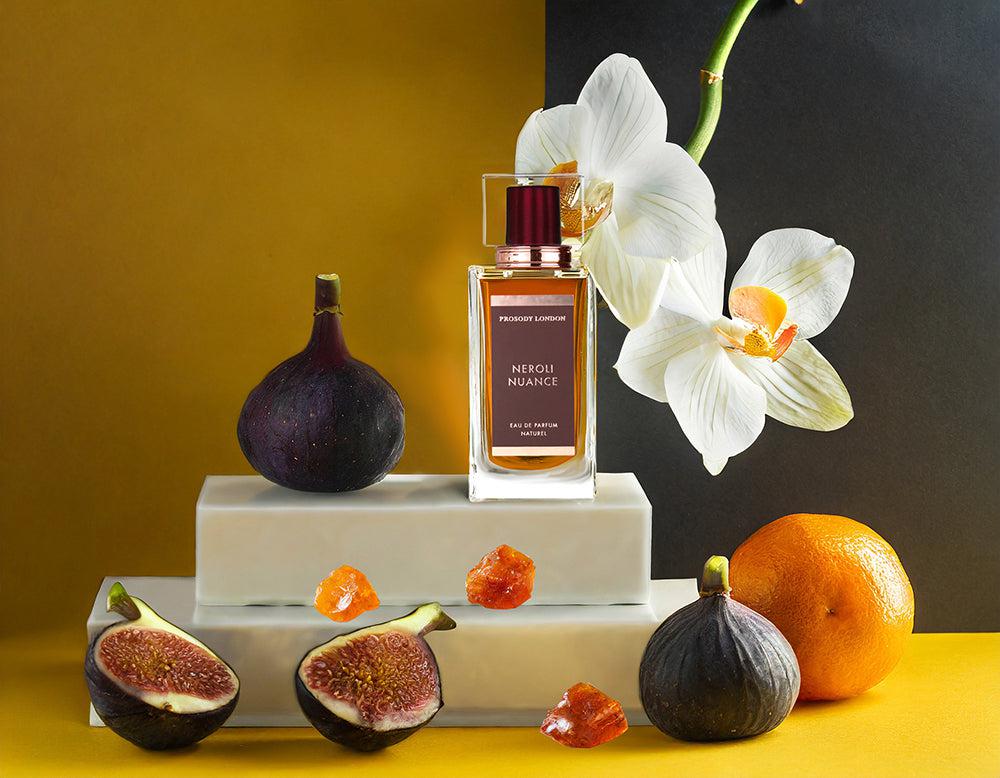

Try Prosody London Vegan Perfume: Neroli Nuance
Conclusion on vegan perfumes:
As consumers navigate the evolving landscape of clean beauty, the realities behind vegan perfumes become increasingly apparent. The complexities of these terms, often exploited for marketing purposes, necessitate a discerning approach. True clean beauty in perfumery involves a commitment to ethical sourcing, genuine sustainability, and a dedication to artistic principles in vegan perfumes. As consumers become more informed about the nuances of these labels, the choices between synthetic and natural ingredients transcend industry standards, becoming a reflection of personal values and an appreciation for the artistic essence that defines the world of perfumery.


